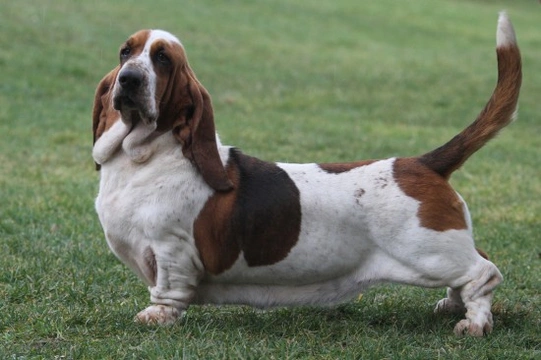
Basset Hound Health: Key Care and Longevity Tips
The noble if rather comical looking Basset Hound originally hails from France, where it was bred for hunting hares and rabbits. Known for its impressive scent tracking, second only to the Bloodhound, the Basset also enjoys recognition in popular culture, such as being the face of Hush Puppy shoes.
With its long, low body, short legs, droopy ears, and loose skin, the Basset Hound has distinctive traits that come with specific health considerations prospective owners should know. Understanding these will help you provide the best care and ensure your dog’s wellbeing throughout life.
1. Caring for Basset Hound Ears
The Basset’s long, pendulous ears (often called "leathers") hang close to the ground and food bowls, restricting fresh air circulation in the ear canal. This makes them vulnerable to infections and ear mite infestations. Regular and thorough cleaning and drying of the ears are essential to prevent problems.
Owners should also take care to prevent the ears from dragging on the ground or dipping into food dishes, which can worsen ear health. Daily inspection, dealing with wax build-up, and prompt veterinary attention on signs of infection are vital parts of responsible care.
2. The Basset Hound’s Unique Build and Joint Care
Basset Hounds exhibit a form of canine dwarfism called osteochondroplasia, resulting in their short legs and long backs. This predisposes them to joint issues such as hip and elbow dysplasia, and intervertebral disc disease (IVDD), a spinal condition causing pain and mobility problems.
Jumping from heights can cause injurious impacts to the hips, spine, and legs. Special care should be taken, especially for puppies and older dogs, to avoid such injuries. Maintaining a healthy weight and providing moderate, low-impact exercise can support joint health.
3. Eye Health Tips
Basset Hounds’ large, expressive eyes are exposed and prone to irritations and infections. Grit and mucous can gather in the lower eyelid area, so wiping the eyes daily with a clean, damp cloth can help keep them clear. Watch for signs of redness, discharge, or swelling, and seek veterinary advice if you notice any abnormalities.
4. Managing Coat and Skin Care
The loose skin folds can trap moisture and dirt, making Bassets prone to skin conditions like dermatitis and yeast infections, particularly around the droolly mouth area. Regular cleaning and drying of skin folds, along with the use of canine-safe absorbent powders, can help prevent infections and keep the skin healthy.
5. Exercise Requirements for a Healthy Basset
Despite their relaxed appearance, Basset Hounds require regular exercise to maintain optimal weight and health. Bred for endurance, they appreciate long walks and gentle play rather than fast sprints. Regular activity helps prevent obesity, a common problem that exacerbates joint and heart conditions.
6. Lifespan and Common Health Conditions
The average lifespan of a Basset Hound is around 11 to 13 years, which is typical for a dog of this size and build. Common causes of death include cancer, heart disease, bloat (gastric dilatation volvulus), and complications from obesity.
Obesity in later years can worsen existing health issues, so feeding a balanced diet appropriate for their age and keeping them active is crucial.
Responsible Ownership and Health Maintenance
Routine veterinary check-ups are vital to catch and manage health issues early. When acquiring a Basset Hound, seek reputable breeders who screen for genetic conditions and prioritise the health and temperament of their dogs.
Through attentive care, good nutrition, regular exercise, and preventing injuries, Basset Hound owners can help their companions live happy, healthy lives well into their senior years.



